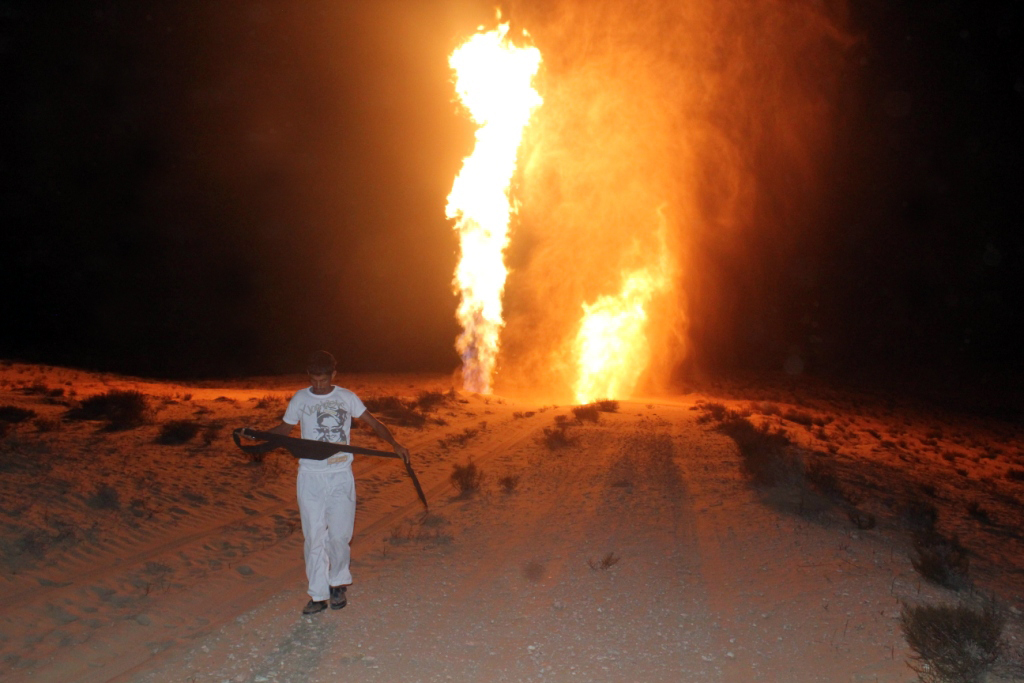CAIRO: Polling stations will open Tuesday morning for citizens to cast their votes in the first round of the Shoura Council’s mid-term elections.
Some 446 candidates are vying for 74 seats in Egypt’s Upper House of Parliament; in 55 constituencies across the country. Of these, 115 represent 13 parties and 331 are running as independents.
The runoff is scheduled for June 8.
Shoura Council speaker Safwat El-Sherif told National TV Sunday that he rejected any sort of foreign interference in monitoring the Shoura poll or any other elections. He stressed that Egypt is a democratic country governed by the law and the constitution.
El-Sherif further told “Weghet Nazar” (Point of View) evening show on state-TV’s Channel One that “the constitution allows any citizen to run for election.”
“But a candidate (has to) think over whether he will be able to represent his constituency in the council,” El-Sherif, also the NDP Secretary General, said.
Head of the Supreme Electoral Commission Intissar Nassim also said that he wouldn’t accept any external or internal interventions in the poll.
In a recent press conference, Nassim announced that the commission’s branches in every constituency would strictly deal with any violations by security forces during the voting process.
Stressing that the competition would be “totally transparent,” Nassim urged voters to inform the commission of any violations.
Muslim Brotherhood (MB) candidates have repeatedly accused security bodies and the commission of committing violations against them in order to help the ruling National Democratic Party (NDP) members win most of the seats.
MB candidates said during a recent press conference, held by the Lawyers’ Syndicate freedom committees, that their activities at the constituencies were monitored by state security officers.
They further accused security authorities of arresting and physically assaulting many of their supporters.
“There are always … violations in the political (scene) and in election competitions all over the world,” Mohamed El-Dakrouri, member of the Shoura Council legislative committee, previously told Daily News Egypt.
According to El-Dakrouri, also a counselor, in case any violations are committed, a candidate should file a complaint before the electoral commission.
“The commission….will then face (them) (as the entity) in charge of maintaining equal rights (among candidates),” he explained.
But in the case of the MB candidates, “they have to resort to the judiciary where each side can present his case,” he said.
MB members run for elections as independent since the group is legally banned.
Though election rules ban the use of slogans that are religious in nature or advocate gender or racial discrimination, MB candidates insisted on using the group’s famous slogan “El-Islam Howa El-Hal” (Islam is the solution). This led to many of the group’s candidates to be ruled out.
Meanwhile, Egyptian Organization for Human Rights (EOHR) said Monday in a statement that the electoral commission hindered its activities.
EOHR had earlier submitted a request for 125 researchers to be allowed to monitor the election in 22 governorates. But it was only granted 20 permissions for four governorates.
“Refusing to release permissions … raises questions over the commission’s commitment towards international and constitutional standards to ensure the integrity of the elections,” EOHR said in a statement.
“The commission’s stance represents negative indicators, raising doubts over the transparency of elections,” EOHR Secretary General Hafez Abu Seada told Daily News Egypt Monday.
The Shoura Council was founded in 1980 based on a constitutional amendment passed following a public referendum. The People’s Assembly (the Lower-House of the Parliament) then approved the formation of the Shoura Council.
The Shoura Council has 264 members; two thirds are elected by direct secret ballot, half of them at least, must be workers and farmers. The remaining third is appointed by the President.
The term of membership of the Shoura Council is six years. A bi-election is held every three years. The Speaker of the Shoura Council is the Chairman of the Supreme Press Council.
The council may not be dissolved except by a Presidential decree and only in case of necessity. Members of the Council have Parliamentary immunity.
The council is consulted in several issues including, but not limited to, proposed constitutional amendments, draft laws, general plans for socio-economic development and all treaties affecting Egypt’s territorial integrity or sovereignty. –Additional reporting by Essam Fadl
